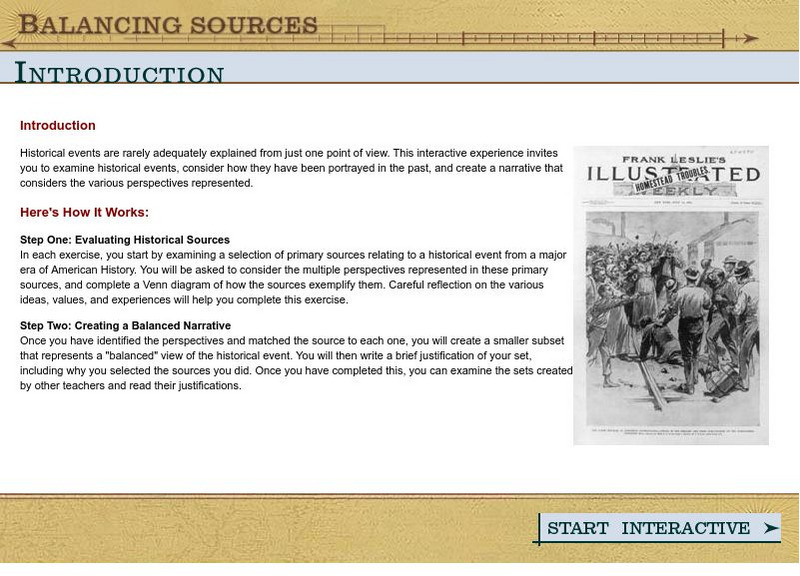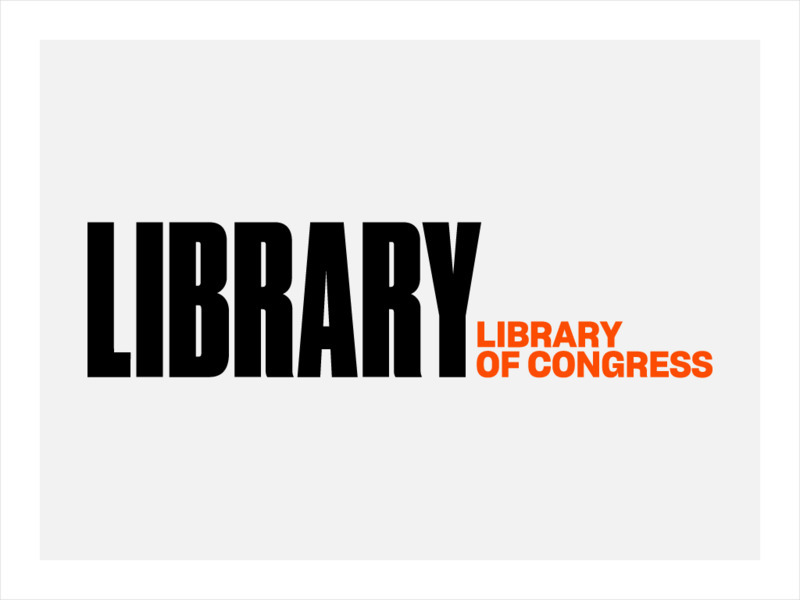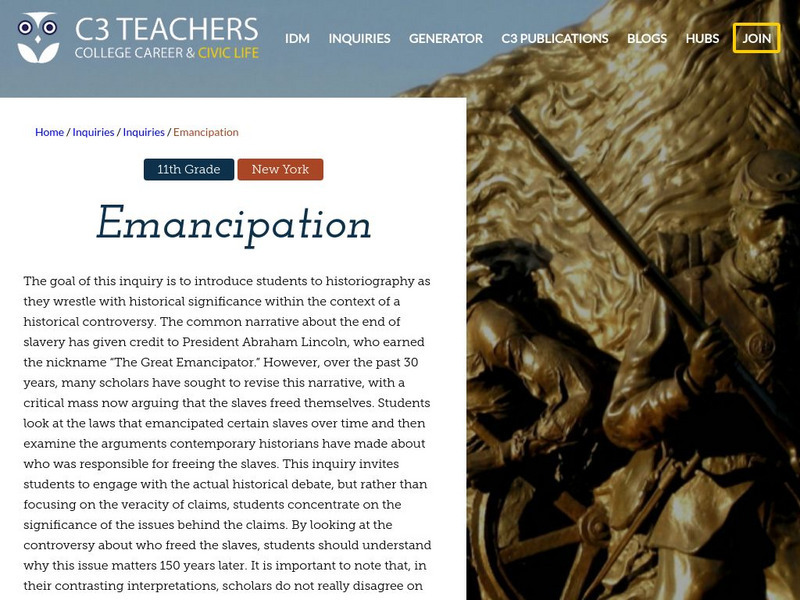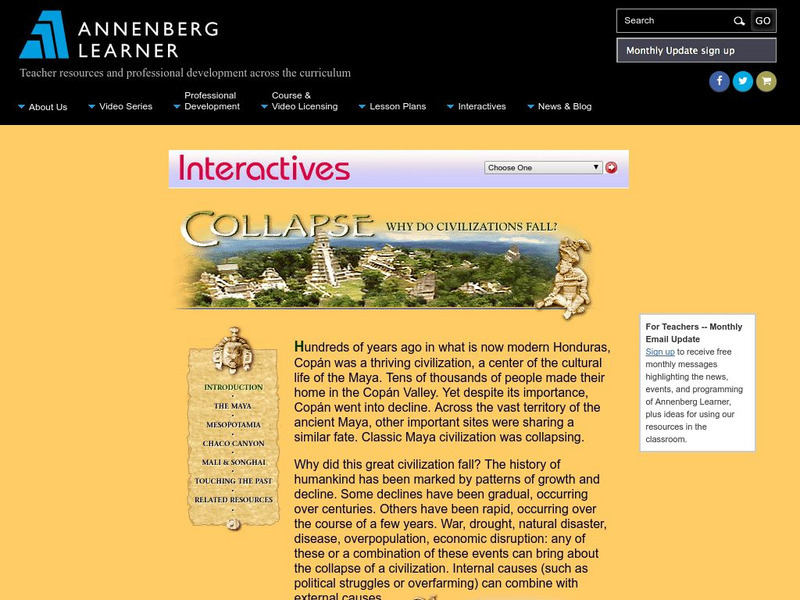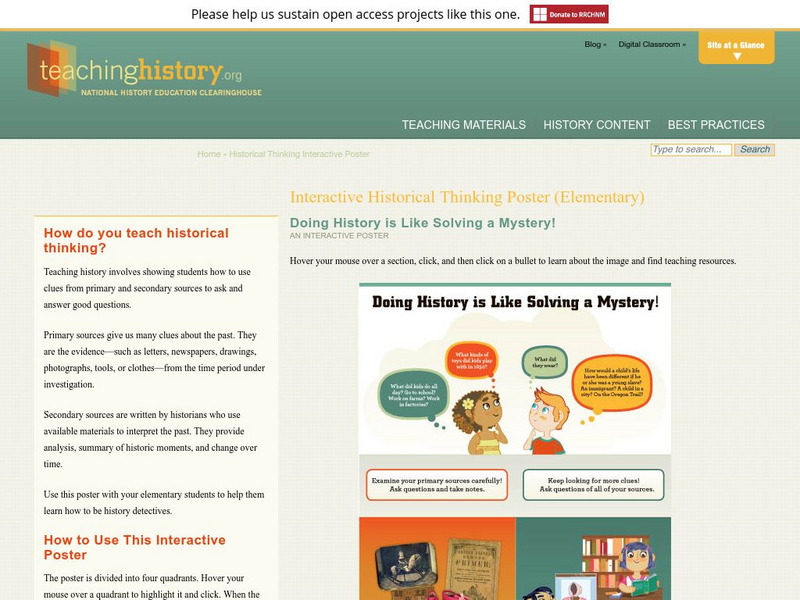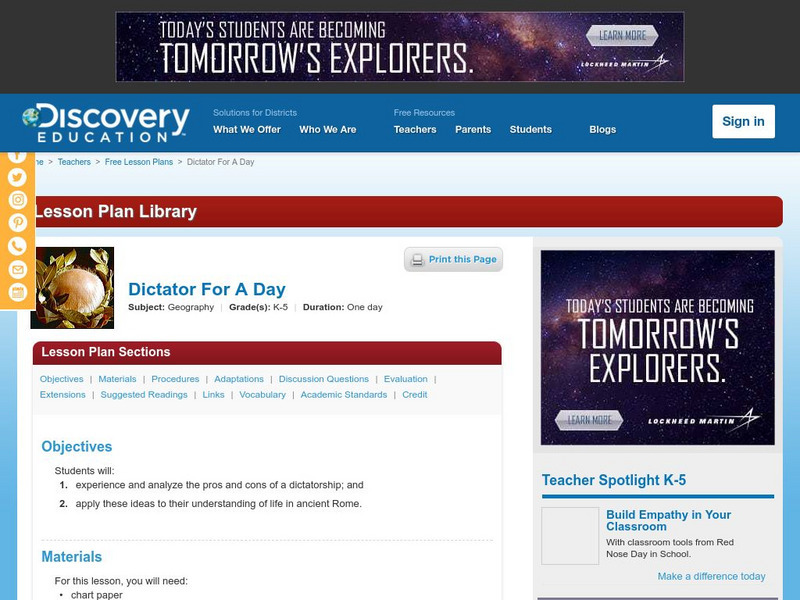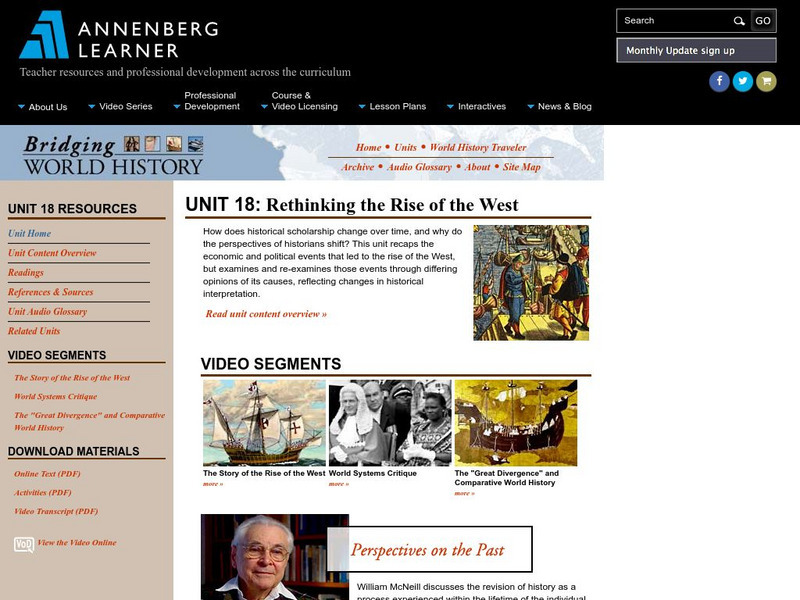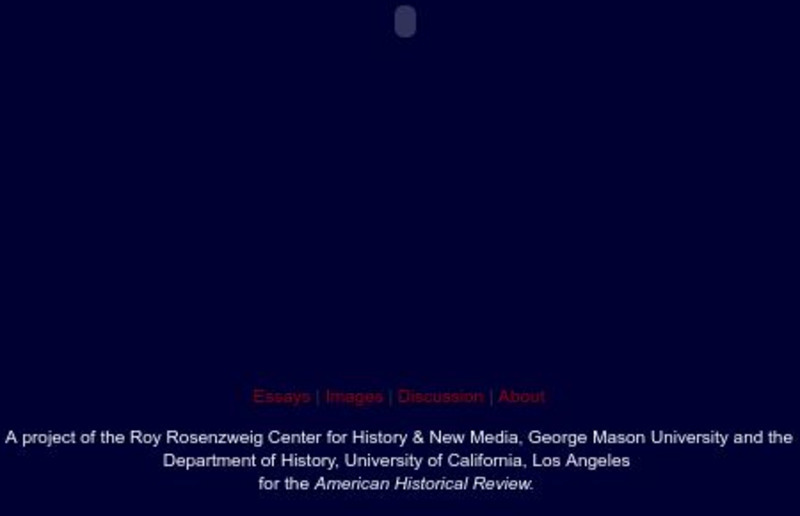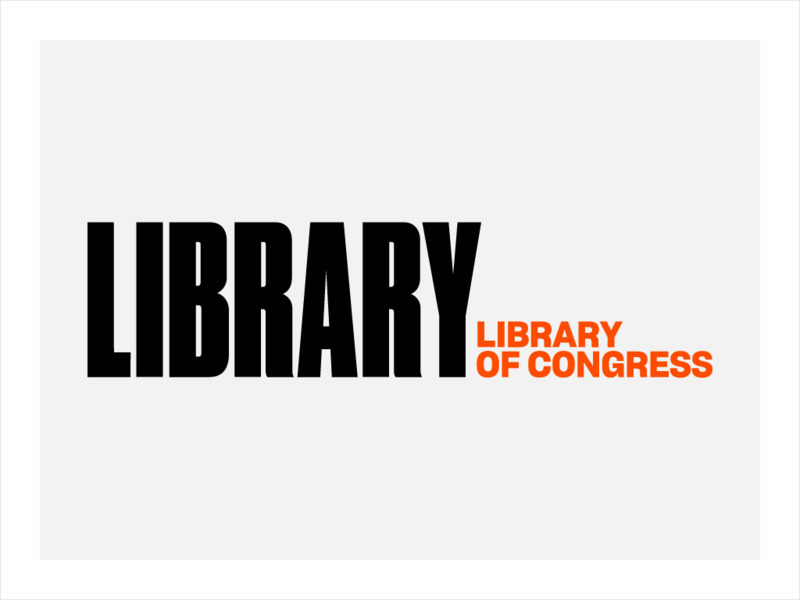Curated OER
Teacher Notes
Gathering information, distinguishing between arguments, preparing an oral presentation; these skills are fostered as 10th graders explore aspects of global trade and politics. They use the Internet to gather information about NATO, The...
Curated OER
A Day of Infamy:Analyzing FDR’s Pearl Harbor Address
In 1941 FDR spoke out on the events at Pearl Harbor. The class will get to analyze word choice, word meaning, author's craft and structure by analyzing an actual draft of this speech. They will look critically at the words used,...
Curated OER
Many Passages: The Voyage of the Slave Ship Brookes
Examine three perspectives of the slave trade - captain, sailor, and captive - through this collaborative analysis activity. Small groups study one perspective with a primary source to analyze. They discern what is a historical fact and...
Smithsonian Institution
Smithsonian Education: Artifact & Analysis: Historical Interpretation
A companion to American history courses, Artifact & Analysis features historical artifacts and documents about consumerism and the nation expanding, teacher's guide, writing assignments, and essays.
Other
Dwellings: The Message of Houses and Their Contents, 1780 1820
Architectural styles of the times reflected the economic status and taste of the individuals who owned the houses. As this turn of the century proceeded from 1780 to 1820, many changes occurred in communication, transportation,...
Other
Georgia Tech Research Institute: Chronicling America: Us News Map
A fascinating way to look at history, this interactive map lets you search for a person, event, issue, etc. over a specified time frame and it maps newspapers containing related content onto a map of the United States. An additional...
Other
Historical Scene Investigation: The Boston "Massacre"
In this activity, students examine primary sources to learn about the perspectives of the different parties involved in the Boston Massacre of 1770, and to form opinions about who was responsible for what happened and whether the verdict...
Other
Houston Independent School District: Social Studies Strategies [Pdf]
Hone in on methods for historical thinking and the process of historical inquiry when studying social studies.
Annenberg Foundation
Annenberg Learner: Balancing Sources
This is from an American history course designed for teachers to enrich their knowledge and their teaching practice. This interactive is a set of nine exercises where teachers evaluate primary resources related to a specific event in...
Annenberg Foundation
Annenberg Learner: Placing Artifacts in Time
This is from an American history course designed for teachers to enrich their knowledge and their teaching practice. This interactive focuses on how history views Pocahontas. It looks at how historical events are re-interpreted as time...
Library of Congress
Loc: History Firsthand: Primary Source Research
History Firsthand has been designed to provide elementary children with experiences which enable them to begin understanding primary sources. Students move from personal artifacts to the vast American Memory collections and learn how...
US National Archives
Docsteach: A Revolution, a Reaction and a Reform: National History Day
Students will analyze primary source documents related to the National History Day (NHD) theme for 2011-12: Revolution, Reaction, Reform in History, determine how the documents are connected to the theme, and evaluate the effectiveness...
C3 Teachers
C3 Teachers: Inquiries: Emancipation
A learning module on the emancipation of African American slaves after the Civil War. It includes several supporting questions accompanied by formative tasks and source materials, followed by a summative performance task. Students will...
C3 Teachers
C3 Teachers: Inquiries: Manhattan Purchase
A comprehensive learning module on the purchase of Manhattan that includes three supporting questions accompanied by formative tasks and source materials, followed by a summative performance task. Students examine why the Dutch wanted...
Annenberg Foundation
Annenberg Learner: Collapse: Why Do Civilizations Fail?
Explore different ancient civilizations to learn about some of the reasons these civilizations collapsed. Looks at Maya, Mesopotamia, Chaco Canyon, Mali and Songhai. Includes interactive activities.
Other
Historical Thinking Matters: Rosa Parks: Textbook
In this lesson, students critique a standard textbook account of Rosa Parks and the Montgomery Bus Boycott. They read and analyze two primary documents and consider how this evidence specifically contests the textbook's account. Then...
University of Texas at Austin
University of Texas: Restoring Women to World Studies [Pdf]
In much of the social studies-especially courses focused on world history, geography, and culture-there has been a long-standing awareness that the experience of women has been left out of the narrative. Recent changes in state,...
Library of Congress
Loc: Become a Historical Detective
Search American Memory collections and play the role of a detective in this lesson plan that seeks to find out if Billy the Kid really was killed by Pat Garrett at Fort Sumner, New Mexico.
Roy Rosenzweig Center for History and New Media
Teaching History: Doing History Is Like Solving a Mystery!
Use this interactive poster to explore how students understand history and find resources about teaching historical thinking to students.
Discovery Education
Discovery Education: Dictator for a Day
A lesson plan challenging students to identify the pros and cons of dictatorship and applying those to understand what life was like in Ancient Rome. Find adaptations for younger students, discussion questions, assessment, enrichment, as...
Annenberg Foundation
Annenberg Learner: Bridging World History: Rethinking the Rise of the West
Historical interpretation is subjective, and therefore views on particular movements, such as the western world's rise to power as covered in this unit, can be altered over time by historians.
Library of Congress
Loc: Creating a Primary Source Archive: All History Is Local
A lesson plan where young scholars collect local primary documents and examine the interplay between national, state, local, and personal history.
George Mason University
George Mason University: Imaging the French Revolution
A scholarly presentation of the French Revolution that is organized in three ways. The essays analyze images from this civil war. The discussions look at various interpretations, historians' methodologies, and at what effects digital...
Library of Congress
Loc: Change in Early 20th Century America: Doing the Decades
This unit provides a flexible investigative structure for the study of selected themes in U.S. history and culture using the American Memory collections and related resources. Core goals are the development of relationships between...







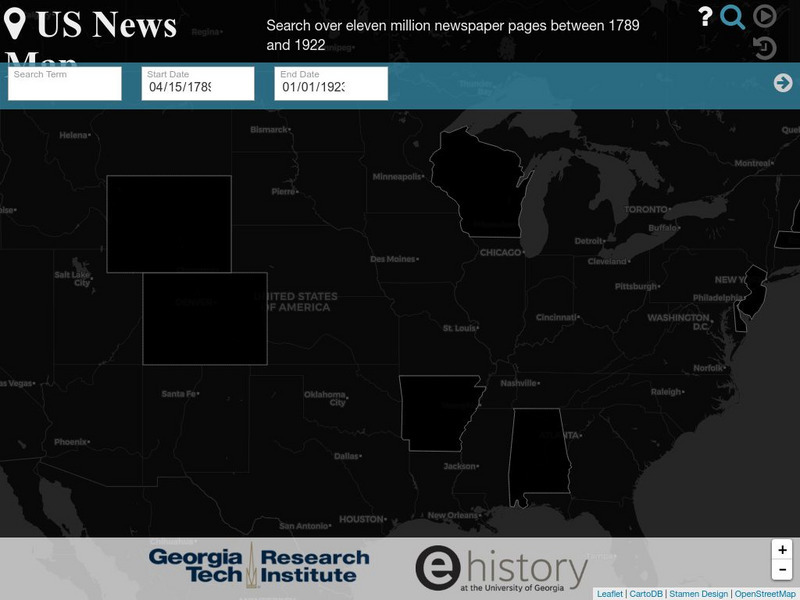
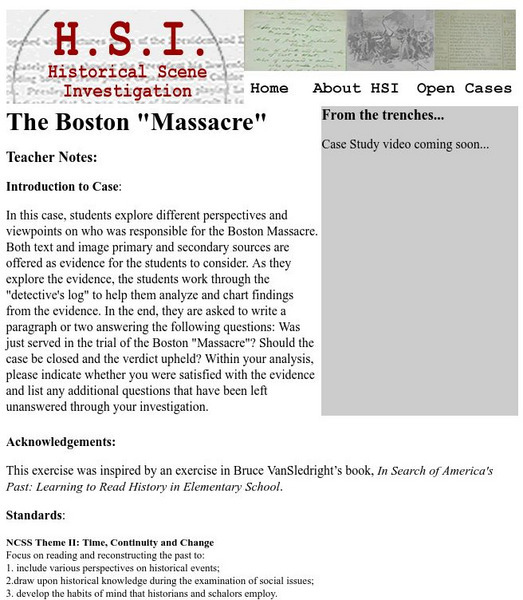
![Houston Independent School District: Social Studies Strategies [Pdf] Professional Doc Houston Independent School District: Social Studies Strategies [Pdf] Professional Doc](https://d15y2dacu3jp90.cloudfront.net/images/attachment_defaults/resource/large/FPO-knovation.png)
